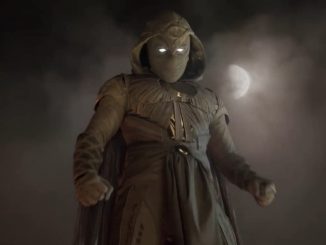
I think it’s important to preface this review by saying that I’m a fan of motorsport – always have been. I love cars and I love driving, but generally speaking I have a pronounced dislike for racing movies. I’ve always found films like The Fast and the Furious to be Americanised, self-indulgent and insultingly unrealistic. The bottom line has always been;these cars are fast, they make loud noises, there are some naked women. Enjoy.
Asif Kapadia’s Senna did manage to be both thoughtful and visceral, but that was a documentary.
And so it was with no small amount of scepticism that I went to see Rush, which tells the story of the now infamous rivalry between 1970s Formula One drivers Niki Lauda and James Hunt, whose diametrically opposed temperaments drove each to death defying lengths to gain supremacy over the other.
It says a lot for Rush that it’s more complex and satisfying than the bare-bones plot suggests. Australian actor Chris Hemsworth (Thor) takes the apparent star role in this film as the blonde, glamorous English playboy Hunt, driving for McLaren, widely regarded as a casual risk-taker on the track: a man routinely pictured with a glass of champagne and two or three biddable young women clinging to his limbs.
In an early scene, he staggers bloodied from a racetrack into a hospital and announces himself, 007 style, as “Hunt. James Hunt.” Within minutes he’s having sex (behind the screens) with the nurse treating him.
The dour Austrian Lauda, driving for the Ferrari team, is played with remarkable conviction by German actor Daniel Brűhl (Inglorious Bastards). Lauda was methodical, industrious, a cerebral assessor of risk, and generally not much fun. “You’re just a party boy,” he sneers at Hunt. What perfect rivals.
Both actors acquit themselves well: Hemsworth, who established himself as a heartthrob in “Thor,” goes a little beyond cheap appeal in this film, and gives credence to his character’s need to win. Brűhl’s Lauda grows in stature as Rush progresses, and from the film’s turning point – his appalling accident in a Grand Prix at Nűrburgring, where he sustained terrible burns to his head and face and damage to his lungs – he becomes the emotional centre of the story.
There’s more going on here then what initially meets the eye. The film’s texture is due to screenwriter Peter Morgan (The Queen) who does his usual trick of writing modern “history plays’”, accurately rendering known public facts while imagining vivid conversations behind closed doors. The real surprise is that the movie’s director is Ron Howard, whose work is usually marked by competent blandness. Not here though. Rush induces the adrenalin suggested by its title in its racing scenes: howlingly, teeth-rattlingly loud and cut lightning-fast, in what look to be perilous close-ups.
Don’t be deterred if you find Formula One a bit of a drag on TV – this is motorsport on steroids, and I’m surprised to find I love it.
Rush has sex, glamour, a fair degree of wit and a breathless, pedal-to-the-metal spirit. But its greatest achievement may be to underline that there are real men, all vulnerable flesh and blood, brushing shoulders with death inside the machines.
Four Stars
Daniel McDonald
Image credit: Creative Commons




Leave a Reply